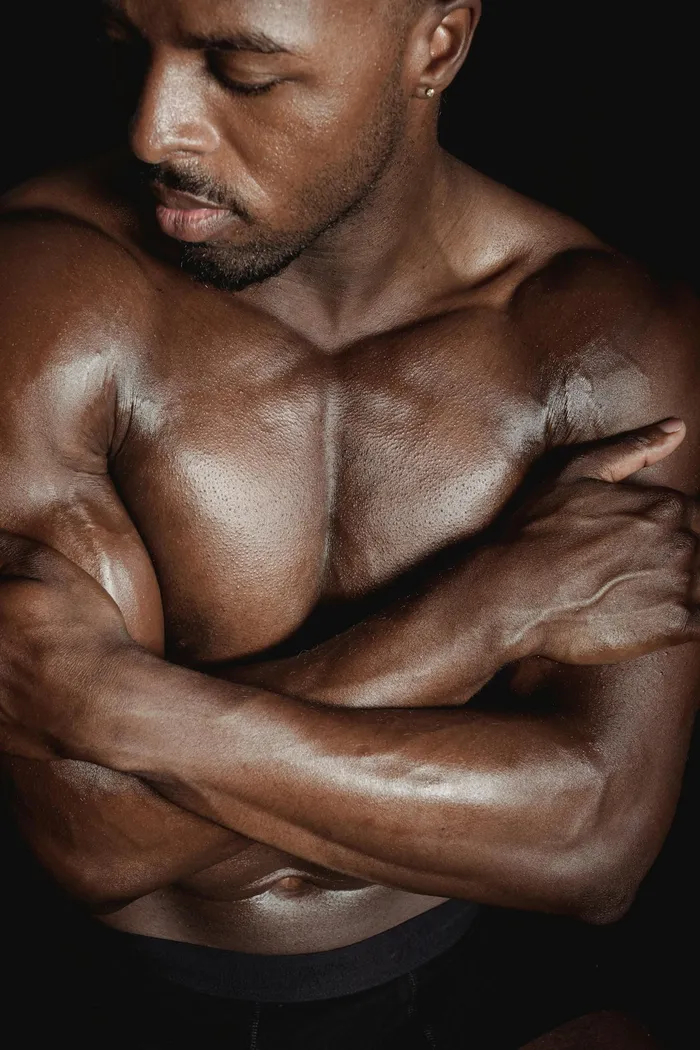5 skincare blunders to avoid: your skin will thank you later

Men naturally produce more sebum (oil), especially those with high testosterone levels.
Image: Mike Jones/pexels
Winter hits differently. The days get shorter, the mood dips a little lower, and our skin?
It often becomes an innocent casualty of colder air, dry heaters, and a little too much “I’ll deal with it later,” leaving some of us starting to feel (and look) a little … worn down.
And in light of Men’s Mental Health Month, there’s never been a better time to talk about showing up for yourself, from the inside and the outside.
Because, as cliché as it sounds, looking good really does help you feel better. And when Seasonal Affective Disorder (SAD) threatens to cloud your glow, paying attention to small daily habits can make all the difference.
It's a known fact that there’s power in taking care of yourself.
And no, we’re not talking about doing a 10-step skincare routine or spending a fortune on fancy products. We’re talking about ditching the small, everyday habits that secretly sabotage your skin and possibly your self-esteem, too.
Because sometimes, nothing beats the blues better than looking good and feeling in control.
1. Skipping SPF: The “manly” mistake that’s hurting your skin
We get it. Sunscreen feels like a “summer thing.” But it’s non-negotiable, even in winter. Dr Michele Green, a cosmetic dermatologist, explained to "Men's Health" that, “Sunscreen is your ultimate line of defence against UV radiation even when the sun isn’t blazing.”
And yet, according to the Centers for Disease Control and Prevention (CDC), only 12.3% of men over 18 wear sunscreen when outside for more than an hour. That’s shockingly low.
UV damage builds up over time, and for South African men, especially those with darker skin tones, hyperpigmentation and uneven texture can creep up silently. And yes, black and brown skin can get sunburnt and skin cancer, too.
Pro tip: Look for moisturisers with broad-spectrum SPF 30. Two birds, one product.
2. Sleeping on dirty sheets? Your skin hates you for it
Your face spends six to eight hours a night on your pillow. Now, imagine that pillow hasn’t been washed in weeks. Men naturally produce more sebum (oil), especially those with high testosterone levels.
This oil transfers to pillowcases, mixes with sweat and dead skin, and becomes a breeding ground for breakouts and irritation.
Dermatologists warn that this also triggers conditions like eczema and acne mechanica, a form of acne caused by pressure and friction.
Pro tip: Wash your pillowcases every three to four days. You’ll see the difference.
3. Using body soap on your face? That’s a hard no
It might be easy, but it’s one of the fastest ways to wreck your skin barrier. Body soap is designed for thick, rougher body skin, not your sensitive face.
These soaps often contain harsh detergents that strip your skin of its natural oils. What follows? Dryness, flakiness, irritation, and premature ageing.
4. Skipping moisturiser: Oiliness is not the same as hydration
If you think your skin is too oily for moisturiser, you’re not alone. But it’s a myth that needs killing. Green says, “Dehydrated skin can actually cause your oil glands to go into overdrive, leading to more breakouts and shine.”
So by skipping moisturiser, you’re setting off a chain reaction that does the opposite of what you want. Experts advise choosing an oil-free or gel-based moisturiser if you’re acne-prone or feel greasy easily.
5. Picking at ingrown hairs and pimples? You’re making it worse
Whether you’re dealing with coarse facial hair or the odd breakout, picking is tempting but damaging.
Dermatologists explain that digging at ingrown or squeezing pimples spreads bacteria, causes hyperpigmentation, and often leaves behind dark marks and scars. That “quick fix” actually sets your skin back weeks.
Helps to use a warm compress and gentle exfoliation for ingrown hairs, and spot-treat pimples with salicylic acid or benzoyl peroxide. Hands off.
Skin + self-worth
When you look good, you feel good, and while skincare won’t cure depression or seasonal affective disorder (SAD), taking charge of your physical appearance can boost self-esteem, improve mood, and give you small wins that matter.
A 2021 study in BMC Public Health found that men who engaged in regular self-care routines reported lower stress and improved emotional well-being.
And in winter, when SAD is more common, those routines can become anchors that help you stay grounded.SPF daily, even on cloudy days
- Wash your pillowcases often
- Use face wash, not body soap
- Moisturise, even if you're oily
- Stop picking, treat, don’t poke
Your skin tells a story of how you care for yourself, what you prioritise, and how you’re feeling inside. This winter, and during Men’s Mental Health Month, let that story be one of empowerment, self-respect and growth.